The Mill on the Floss is about a family, about the place of women in the nineteenth century, about nineteenth century society, and about loss and redemption. It is also a novel about revenge. But most of all, George Eliot frames her story around questions of morality and its place within ‘good society’. George Eliot is an author with the life experience and intellectual nous to put on a literary performance that is both gripping as a melodrama, but with cerebral ruminations which, if anything, heighten the drama and the stakes we, as readers, feel her characters face.
The Mill on the Floss was George Eliot’s second novel and third book. The reception for her first novel, Adam Bede, had been positive and George Eliot was England’s new literary star. There had been speculation about the author’s identity. Elizabeth Gaskell, author of North and South and Mary Barton, assumed Eliot was a man. Charles Dickens defied convention and expressed his belief in a letter to Eliot that she was a woman. Eliot resolved the speculation in the spring of 1859 after Joseph Liggins, a journalist, allowed rumours to fester into accepted fact, that he was indeed the author of Scenes of Clerical Life and Adam Bede. Prior to this, some people had even speculated that George Eliot was a clergyman. The shocking truth was revealed when Mary Ann Evans claimed authorship. It became public knowledge that George Eliot was a woman in a long-term relationship with a married man, George Henry Lewes. Gaskell, who had written to Eliot prior to her revealed authorship, wrote again to say that she wished Eliot was married to Lewes.
A Feminist Hero
For modern readers this may be the easy point of identification with Eliot’s story and her protagonist. The novel has many feminist overtones. There are male characters in the novel who would draw the ire of modern readers. Mr Glegg ruminates on the “‘contrariness’ of the female mind”. On the intellect of women Mr Stelling allows that, “They can pick up a little of everything”, but describes their intelligence as “superficial cleverness”. The issue of education and purpose for women in the nineteenth century is raised by the novel. Maggie Tulliver, Eliot’s protagonist, is smart – far more academic than her brother – but she misses the educational opportunities afforded him. It is little wonder that she is the problem child in the family. She hacks off her own hair in defiance, she pushes her cousin in the mud, she tries to run off with the gypsies and she thinks patchwork “foolish”. Some details make her feel even more modern. She identifies with non-blondes in books she reads, and submits her doll to “a long career of vicarious suffering”, like Kate McKinnon’s Weird Barbie. Maggie drives nails into her doll’s head, and finishes by “grinding and beating the wooden head against the rough brick.” But these are all aspects of Maggie’s childhood. As the story of the Tulliver family progresses and Maggie is forced to navigate the conflict between her passions and loyalty to family, the stakes become harsh.
Like her protagonist, George Eliot did not conform to social expectations placed on women on the nineteenth century. She had no conventional beauty – she was, in fact, considered ugly by many – but she had a towering intellect. She was an atheist and her romantic relationships broke the moral conventions of the time. Given the circumstances of The Mill on the Floss, it is difficult to separate the author’s life from those of her character. The circumstances of Eliot’s personal relationship with Lewes was partly responsible for a deep rift between her and her brother, Isaac, with whom she had been estranged for years after she renounced her Christian faith in the early 1840s. Like her author, Maggie Tulliver becomes estranged from her brother over her romantic attachments.
The Basics of the Plot
Maggie Tulliver is the daughter of Mr and Mrs Tulliver who operate a mill on the River Floss. Maggie’s parents are both hapless characters who precipitate their own downfall. In particular, Mr Tulliver is a man fond of litigation, taking his neighbours to court over a dam in the area and the use of irrigation. But the family is ruined when Tulliver’s case against Mr Pivart, brought over water rights, fails. Pivart’s lawyer, Mr Wakem, buys Tulliver’s mill and then employs Tulliver to work in the mill as part of his own perverse desire to humiliate Tulliver further. Mr Tulliver, whose own education is basic, has already decided before this that his son, Tom, should receive an education that will equip him to represent the family interests in future matters of the law. He sends Tom to be educated by Reverend Stelling, a young minster with an Oxford education, who gives Tom a classical education. At the same time, Wakem sends his own son, Philip, to be educated by Stelling, and the two boys form a kind of uneasy friendship as they move through their school years.
Tom is not particularly academic, whilst Maggie is eager to read and absorb knowledge. Other than that she is a girl and younger than Tom, she would have been the better choice for the education and plans Mr Tulliver has in mind. When she visits Tom during term she is eager to absorb the lessons her older brother finds wearisome, and forms a close friendship with Philip, with whom Tom will ultimately become estranged over the issue of their fathers’ conflict. The heart of the novel would appear, during a first reading, to be the long-term effort to get the mill back from Wakem. It is Maggie who is sympathetic to their father’s failings to begin with, while Tom’s sympathy lies with their mother, who is distraught at having to sell her linens and other personal items. Yet it is Tom who is in a position to save the family honour. He goes into business with his uncle Deane, and proves to be the loyal and steadfast son who can effect that goal.
Mirroring Eliot’s own circumstance, to a degree, is Maggie’s relationship with Philip, which causes a rift between her and Tom. Maggie and Philip share an innocent kiss when young, and Philip remains faithful in his love for Maggie as they grow older. But while Tom disapproves of the relationship – a relationship never consummated except with declarations and promises, yet endlessly frustrated by Maggie’s sense of loyalty to family – its purity and innocence is not enough to drive the moral tenets of the novel. The later parts of the novel introduce us to Stephen Guest, instead, a young man in business with Uncle Deane who is courting his daughter, Lucy. When Stephen meets Maggie there is instant attraction and temptation. With looks, with song and a stolen kiss, Stephen Guest woos Maggie, who has grown into a beautiful young woman. It is a betrayal of Maggie’s cousin, Lucy, and is dangerous to Maggie’s reputation. On display in this story are passions Maggie can barely control, but must overcome, and circumstances beyond her control, when she finds herself alone in a boat with Stephen Guest, presumed to have eloped, and with her reputation ruined.
Eliot’s Narrator
The Mill on the Floss shares a similar narrative style with Adam Bede. Both novels could be characterised as historical novels, in that their subjects were concerned with the past of Eliot’s contemporary audience, and Eliot inserts her narrator into scenes to create a relationship between her audience and her subject. This is done most dramatically in the beginning of Adam Bede with the “single drop of ink for a mirror” which reflects the past through the medium of the author’s pen. But in The Mill on the Floss Eliot takes the conceit further by introducing herself into the scene in which she describes the Edenic valley in which Dorlcote Mill is situated, and stands in the scene watching young Maggie and her dog who in turn watch the turning wheel of the mill. Eliot’s narrator is sometimes the reader’s surrogate, at other times our guide. In this first scene she immerses us in the topography and industry of St. Ogg’s, before pulling us back into the present and an awareness of the reading experience through her own sudden awakening from her reverie:
Ah, my arms are really benumbed. I have been pressing my elbows on the arms of my chair, and dreaming that I was standing on the bridge in front of Dorlcote Mill, as it looked one February afternoon many years ago. Before I dozed off, I was going to tell you what Mr. and Mrs. Tulliver were talking about
Only a little later, Eliot’s narrator informs us that this scene was “thirty years ago”, which places the beginning of the novel around 1830 (it was published in 1860). Thirty years is easily in living memory, but she describes it as “that remote time” and encourages a sense of the past through objects and places, which represent the earliest formations of our sense of self and emotional maturation (“the long companion of my existence, that wove itself into my joys when joys were vivid.”). Eliot’s selection of a mill, itself, as a home for her characters, is also telling in this regard. Tulliver’s mill is a symbol of an earlier agrarian-style communities mostly lost to Eliot’s readers of the 1860s. Tulliver, himself, anticipates the future pressing against him with his concerns about “large oil mills” and “professional men” who threaten to antiquate his family’s mill.
Eliot forms a relationship with her reader to connect them back to this time to help form an understanding of her representation of the past for the purposes of her narrative. In the following extract, for example, Eliot elevates the reader upon a higher moral plain above characters. Her characters are immured in the physical world and concerned with their possessions. Though an atheist, Eliot even concedes that the basest of religious superstition is striving for something beyond their understanding:
You could not live among such people; you are stifled for want of an outlet towards something beautiful, great, or noble; you are irritated with these dull men and women, as a kind of population out of keeping with the earth on which they live – with this rich plain where the great river flows for ever onward, and links the small pulse of the old English town with the beating of the world’s mighty heart. A vigorous superstition, that lashes its gods or lashes its own back, seems to be more congruous with the mystery of the human lot, than the mental condition of these emmet-like [ant-like] Dodsons and Tullivers.
In fact, while a declared atheist, Eliot was raised as a Protestant and knew her Bible well. As she wrote The Mill on the Floss she was reading John Bunyan’s Pilgrim’s Progress and Thomas à Kempis’ The Imitation of Christ. So while there is an argument to be made that Eliot is a secular writer – that as modern readers we can claim her as a feminist writer, for instance – her drama is played upon a Christian stage with Christian beliefs as its backdrop.
Eliot’s Religious Landscape
Eliot’s setting is ostensibly a religious landscape, but it is not simply advocating religious moral ideals. The situation is complicated by her sense of ‘pastness’ which helps explicate the moral aspects of the novel to form an alternate thesis to the Christian tenets upon which the novel appears to rest: “If the past is not to bind us, where can duty lie? We should have no law but the inclination of the moment.”
In service to this ‘pastness’ is a religious landscape which forms a dramatic mise-en-scène. The childhood of Maggie and Tom, the loss of the mill, the efforts to get it back and Maggie’s temptation by Stephen Guest are characterised by religious structural allusions which heighten the mythic tone of the novel. Stephen compares himself and Lucy to “Adam and Eve unfallen, in Paradise” (a rather ironic comparison since it is Stephen who is the serpent in his own garden). But it is Maggie and Tom whom the broad structure of the novel posits as Edenic innocents. Eliot signals this through her idyllic description of the mill and the Floss valley in her opening chapter. But it is also suggested through chapter and part titles. Chapter 7 of part 2 is titled ‘The Golden Gates are Passed’, which Eliot’s text explicitly identifies as “the golden gates of their childhood”. Philip and Maggie have already enjoyed an innocent kiss in the previous chapter, but the loss of the lawsuit and the mill is the end of childhood – the putative passing from Paradise – which the Golden Gates represent. The title of the third book of the novel, which follows this chapter directly, is ‘The Downfall’. Tom and Maggie have suffered a fall from their Edenic state (as has Mr Tulliver and the family). Not by their own actions, but by the machinations of adults in their world. Shame and humiliation will follow. Not only will they lose the mill, held by the family for generations, but they will suffer the ignominy of selling their possessions to an acquisitive and largely unsympathetic extended family.
Maggie and Tom’s relationship is ruptured through Maggie’s continued association with Philip, and later the disgraceful association with Stephen Guest, but Eliot also uses Biblical allusion to signal their drift. With his father bankrupt, the mill lost and the family humiliated, Tom emerges from his childhood and education as the responsible sibling who will save the family fortunes. He is focussed, intense and sometimes emotionally inflexible. He lacks Maggie’s intellectual depth and imagination, but he has a capacity to work hard and defend his family’s reputation. For her part, Maggie is less reliable, as seen from Tom’s point of view. Early in the novel when still young she examines a set of pictures representing the Prodigal Son from Christ’s parable. Maggie is not prodigal in the sense of the son in the parable (later she is willing to take on the role of governess to support herself. Her independence is important to her). But in Tom’s eyes she betrays the feelings of her father by associating with Philip. Her father can forgive Maggie her peccadilloes but Tom cannot. The rift between Maggie and Tom is long and slow. When they are children she forgets to feed Tom’s rabbits, having been asked to do so, and they die. The story of the Prodigal Son plays on Maggie’s mind at this point. She is glad the father took the son back in the story she tells Luke, the head miller, with the death of the rabbits still weighing on her conscience. But Maggie is disturbed that she does not know the young man’s subsequent history after the parable. Eliot’s use of the parable signals that the issue of forgiveness is important to the story: that the moral weight of the story looks beyond human failing, to consider how human frailty is responded to within a community predicated upon Christian paradigms.
Also contributing to this Biblical landscape is Eliot’s allusion to the parable of the Wheat and Tares in the title of the fifth book of the novel. In book five Philip attempts to persuade Maggie of his love and to extract a promise of love from her, too. Philip imagines himself as a sower: “I think of too many things,—sow all sorts of seeds, and get no great harvest from any one of them. I’m cursed with susceptibility in every direction, and effective faculty in none.” Philip’s eclectic interests are a bulwark against the realities of his life, in which he desires “some faculty that would lift me above the dead level of provincial existence.” But unless he can persuade Maggie to loving him, his purpose and hopes are likely to remain frustrated.
For Tom’s part, the wheat and tares represents the frustrated outcomes of his efforts. Having spent years working to save the money to pay off his father’s debts and buy back Dorlcote Mill, his father, in a moment of triumphant overreach, beats Wakem. Tom’s anticipation of the consequences of this action leads him to think that his “exemplary effort must always be baffled by the wrong-doing of others”.
Mr Tulliver remains an unenlightened character. Despite his failures, despite his son’s efforts to save the family and the second chance he is given, Tulliver remains barren ground for a spiritual crop. Eliot, aware of Darwin and the scientific advancements in the knowledge of her time, applies a scientific tone to Christ’s parable:
Certain seeds which are required to find a nidus for themselves under unfavourable circumstances, have been supplied by nature with an apparatus of hooks, so that they will get a hold on very unreceptive surfaces. The spiritual seed which had been scattered over Mr Tulliver had apparently been destitute of any corresponding provision, and had slipped off to the winds again, from a total absence of hooks.
Eliot not only sets her narrative within the scope of this Biblical landscape, but also draws upon other spiritual writers to characterise the moral drama that besets her characters. The title of the fourth book of the novel, ‘The Valley of Humiliation’, is an allusion to Bunyan’s Pilgrim Progress, while also alluding to the physical setting of the novel. The valley in which the mill resides is the site of the Tulliver family’s humiliation. In Pilgrim’s Progress Christian descends into the Valley of Humiliation where he meets a Satanic winged scaly creature called Apollyon, who tries to lure Christian from his service to Christ. Christian must remain faithful to Christ in order to overcome the attack mounted against him by Apollyon. It’s in this fourth book that Eliot really begins to lay the groundwork for her exegesis. Having made the Tulliver family suffer their terrible humiliation, Eliot typically steps back as the narrator, forensically examining the principles of her characters and choosing to side her reader with her, against them. The title of the first chapter of book four, ‘A Variation of Protestantism Unknown to Bossuet’, alludes to the seventeenth century French Catholic bishop, Jacques-Bénigne Bossuet, who wrote against Protestantism as having undermined the moral basis of society by breaking with Rome.
The social portrait Eliot paints here is bleak. She begins by imagining a trip down the Rhone where historical ruins and villagers may be seen. Instead of being inspired by human achievement or wondering at its history, Eliot’s narrator feels a sense of pointlessness in human existence:
But these dead-tinted, hollow-eyed, angular skeletons of villages on the Rhone oppress me with the feeling that human life—very much of it—is a narrow, ugly, grovelling existence, which even calamity does not elevate, but rather tends to exhibit in all its bare vulgarity of conception; and I have a cruel conviction that the lives these ruins are the traces of were part of a gross sum of obscure vitality, that will be swept into the same oblivion with the generations of ants and beavers.
Eliot’s summation places human achievement on par with animals and their needs. We understand there is something she wants us to aspire to beyond the quotidian life that nature forces us to live. The allusion to beavers recalls a metaphor Eliot’s narrator uses earlier to describe the unsuitability of Reverend Stelling’s curriculum for Tom. In that description she had alluded to the story of William Broderip, an English naturalist, who had kept a tame beaver which attempted to build a dam inside a room, despite the reality of its situation. Like Binny the beaver building a dam in a room, Reverend Stelling embarks on a curriculum wholly unsuitable to his pupil. Eliot’s point is that despite the presumption of a higher purpose, the people who inhabit her world do not live with a higher purpose in mind, regardless their Christian pretensions. Instead, “It is a sordid life irradiated by no sublime principles, no romantic visions, not active, self-renouncing faith.” The Dodsons in particular – Mrs Tulliver’s side of the family – practice a religion that is “customary and respectable”, and their lives are motivated by little more than “to be honest and rich; and not only rich, but richer than was supposed.”
This is the source of the great humiliation that Mrs Tulliver feels. She is mortified to give up her linen, her silver teapot, her spoons and best china: it is a humiliation heightened by the advantage her sisters take of her straightened circumstances. It is a difficult time for Maggie and Tom too, who both react to the situation differently. For Maggie, as Mr Tulliver understands, their fall could affect her marriage prospects. But for Maggie, the events surrounding the failure of the lawsuit bring about a more contemplative period in which the only means by which she can cope with loss is to accept it as part of her personal creed. In this, Maggie strives to look beyond the quotidian life of comfort and reputation because it is not available to her. She begins reading Thomas à Kempis, and is inspired by his doctrines of self-humiliation and renunciation. These give her a purpose and philosophy to wrap around her humiliating situation. Her renunciation becomes extreme; her character, once wild, becomes closed and demur.
Philip questions Maggie’s desire for self-abnegation because it is a barrier to their happiness. He calls it a “monomania” that deprives her of happiness and experience in life. Eventually, Maggie grows beyond these personal tenets. But her attempts at renunciation and self-abnegation, even if somewhat misunderstanding the spiritual life upon which Thomas à Kempis predicated these ideals, still effects a maturation which allows her to contemplate her family’s disaster at a level the adults in the family do not have access to.
Eliot acknowledges that Maggie’s need for à Kempis’ doctrines is a crutch. But everyone needs something, she argues, to make sense of their lives; to make life bearable. In this, Maggie’s philosophy serves a similar purpose to the tenets of ‘good society’ itself. Good society, according to Eliot’s narrator, is characterised by the trappings of culture and wealth: of ballrooms, good wines, clubs etcetera. But, she notes, good society is a construction that depends for its existence upon the hard work and exploitation of workers in factories, furnaces and looms. For this state of things to remain stable, Eliot posits, society places its faith in things: good lounges, alcohol or other comforts. In contrast to this, some find comfort in philosophy or doctrine: “something that will feed human love that, clearly, lies outside personal desires, that includes resignation for ourselves and active love for what is not ourselves.”
This is what sets Maggie apart from her family. “Mr Tulliver did not want spiritual consolation” Eliot tells us at the end of the chapter, but “revenge”. Maggie, on the other hand, has made “a faith for herself without the aid of established authorities and personal guides.”
Moral Irony
Maggie’s understanding of Thomas à Kempis does not appreciate fully the spiritual basis of his writing, but it represents a stage in her journey, as well as a counterpoint to her family and the superficial spirituality of a society based upon success and possession. Given that Maggie eventually abandons her commitment to renunciation, the real point is that Maggie is struggling to understand her own passions and desires and act morally, well before Stephen Guest tempts her. Her family has suffered a ‘fall’ through the litigious proclivities of her father, but Maggie’s ‘fall’ is treated somewhat differently. Her personal ‘fall’ begins when she discovers that she is to be accompanied by Stephen Guest in a rowing boat rather than Philip, as she expected. Stephen declares his love during the journey and in the course of events, they accidentally pass the point at which they should disembark. Maggie is left to find her own way back, which takes her over a day, leaving those left behind to assume the worst: that Maggie and Stephen have eloped.
Maggie’s rejection of Stephen is emphatic, despite her desire for him, despite that her acting properly will in no way save her reputation. In fact, under the circumstances, her shame would be wiped clean by a quick marriage as Stephen proposes, even if tongues wag for a while: “natural law” she tells Stephen, “surmounts every other. We can’t help what it clashes with.” What is ‘natural’ in Maggie’s estimation, are the ties that bind people together: friendships, loyalty and love. Maggie feels herself bound by a past that includes a promise to Philip and her loyalty to her cousin Lucy, whom Stephen is courting. In describing Maggie’s emotional struggle, Eliot has already stated aphoristically, “the happiest women, like the happiest nations, have no history.” But the moral point of Maggie’s dilemma is that the ties that bind us cannot be cut with any moral certitude. So Maggie suffers a somewhat ironic ‘fall’, in which the moral precepts upon which she resists temptation will be misconstrued, and an unforgiving society based upon Christian tenets will fail its own principles – of love and forgiveness – to condemn her.
The irony is so stark that it makes Eliot’s point. That moral teachings based upon Christian paradigms rely upon the unsteady application by people who cleave to ‘good society’: who pit general maxims against individual circumstances with rarely any personal insight into the competing demands of passion and duty:
moral judgments must remain false and hollow, unless they are checked and enlightened by a perpetual reference to the special circumstances that mark the individual lot
And the man of maxims is the popular representative of the minds that are guided in their moral judgment solely by general rules, thinking that these will lead them to justice bby a ready-made patient method, without the trouble of exerting patience, discrimination, impartiality
It is here that the intersection between Eliot’s fiction and her own life’s circumstances seems evident. Her true identity as an author was revealed partway through the writing of The Mill on the Floss, and the social opprobrium that accompanied that must have been felt as Eliot wrote her novel.
The Flood
Which brings us finally to the flood. If you have read this far and have not read The Mill on the Floss, you may wish to stop reading for the moment, since I will give away aspects of the ending.
When she was preparing to write The Mill on the Floss, Eliot and George Lewes looked about for an appropriate landscape in which a flood of the kind Eliot imagined for her ending might take place. They settled upon Gainsborough, Lincolnshire. Naturally, the river in the novel is important. It is the source of the power to the mill. It is the site of Maggie’s temptation by Stephen. And it acts as a symbol representing destiny (“Maggie’s destiny, then, is at present hidden, and we must wait for it to reveal itself like the course of an unmapped river”), as well representing an alluring fate unbound by personal will (“the tide was doing it all – that she might glide along with the swift, silent stream, and not struggle any more.”
In the final scenes of the novel the town of St.Ogg’s is destroyed by a flood that takes Tom and Maggie to their deaths and finally reunites them. It is another irony, of sorts, since the Flood in Genesis is sent by God to destroy corrupt and violent humanity, leaving only Noah and his family (and a menagerie of animals) to survive. Now, however, it is Eliot’s Edenic pair who are wiped from the earth, leaving everyone else alive. The town and Dorlcote mill are rebuilt we are told, thereby erasing much of the town’s past. But this is only one instance in a cycle of destruction and forgetting. The final scenes of the novel recall a legend that is told about the town of St.Ogg’s in the first part of the book. Ogg, the son of Beorl, ferries a woman across the river despite the weather, and when she alights on the opposite shore her rags turn to flowing white robes, and she blesses Ogg’s boat, so that none will drown in it during a storm. Ogg eventually dies and the boat is lost, but legend has it that the boat is seen sometimes during storms with the Virgin Mary at its prow.
Apart from its religious overtones the legend is also a story of complacency and forgetting. Eliot’s narrator assumes the role of an historical curator, possessing “several manuscript versions” of the town’s history. For in the time of Eliot’s story the people of the town have forgotten their history: of the impact of the civil war on the town, of floods and religious conflict. “Protestantism sat at ease” she states, and any dissent is seen as a “foolish habit”. This again is the ‘good society’ that elides the reality of its workers upon whose labour it is based, and forgets the very tenets of its own religious paradigms – of charity and forgives – and embraces status and possessions. Despite the town’s rebuilding, Eliot’s narrator states, “To the eyes that have dwelt upon the past there is no thorough repair.” And this is perhaps the final irony of this novel. That while Eliot may criticise this remote past and side against it with her reader, it is a past now being overtaken by industry and factories and the modernising world: the very world in which her contemporary reader inhabits. And it is a world that is thirty years beyond the period in which the tenets of Christian faith are being forgotten or abandoned, however much the institutions of the church may still be in place. Like the history of St.Ogg’s, the history of the church is characterised by change, by violence and an eventual complacency which forgets. To simplify, dismiss or forget the moral struggles of someone like Maggie Tulliver presents moral peril: “If the past is not to bind us, where can duty lie? We should have no law but the inclination of the moment.”
I found the ending to be an amazing emotional moment in the novel, and for days after I finished reading I found myself telling people about it. Yes, it is tragic, and perhaps Maggie and Tom are made to suffer too much in their last final embrace that brings them back together for eternity. That, as modern readers, we may judge the ending too stylised, mythic or unrealistic in its denouement. But apart from the spectacle of the final scenes, it was this that had me admiring the novel: that Eliot could transform something of her own moral thinking into a compelling story within the confines of a Christian landscape, and thereby appeal not only on an entertaining level, but be an intellectually and philosophically satisfying work of art, as well.
 RSS Feed
RSS Feed Facebook
Facebook Instagram
Instagram YouTube
YouTube Subscribe to our Newsletter
Subscribe to our Newsletter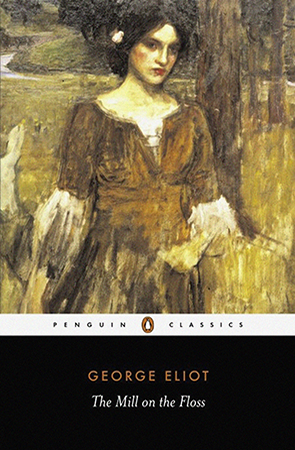

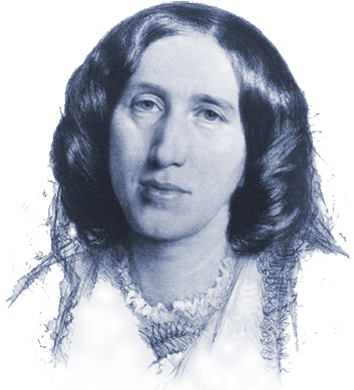
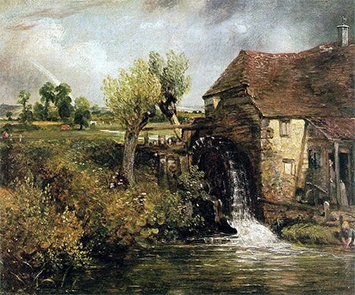
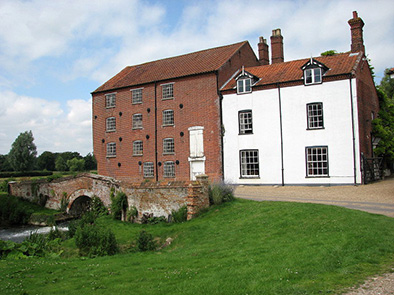
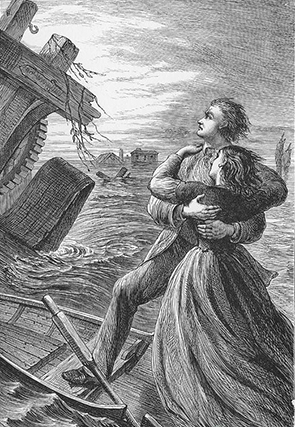
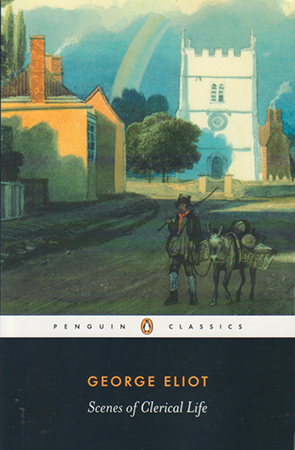
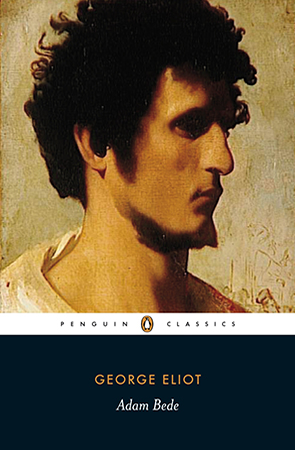
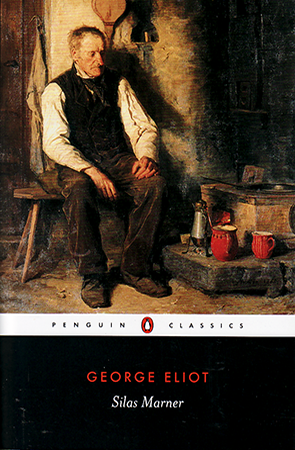
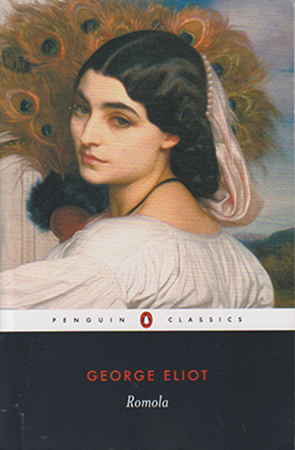
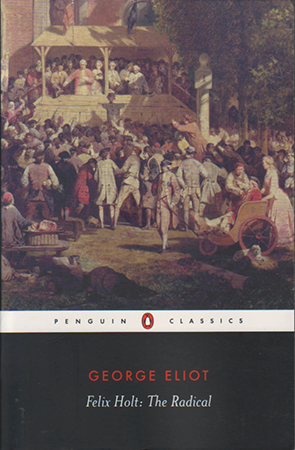
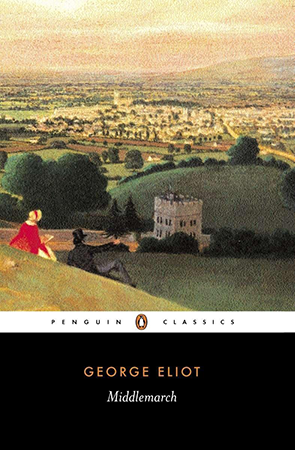
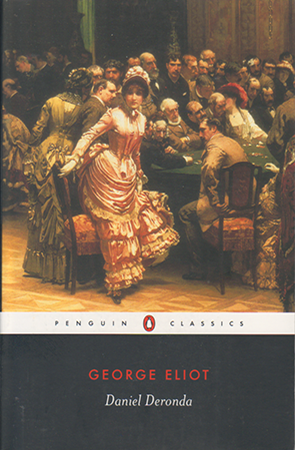

No one has commented yet. Be the first!